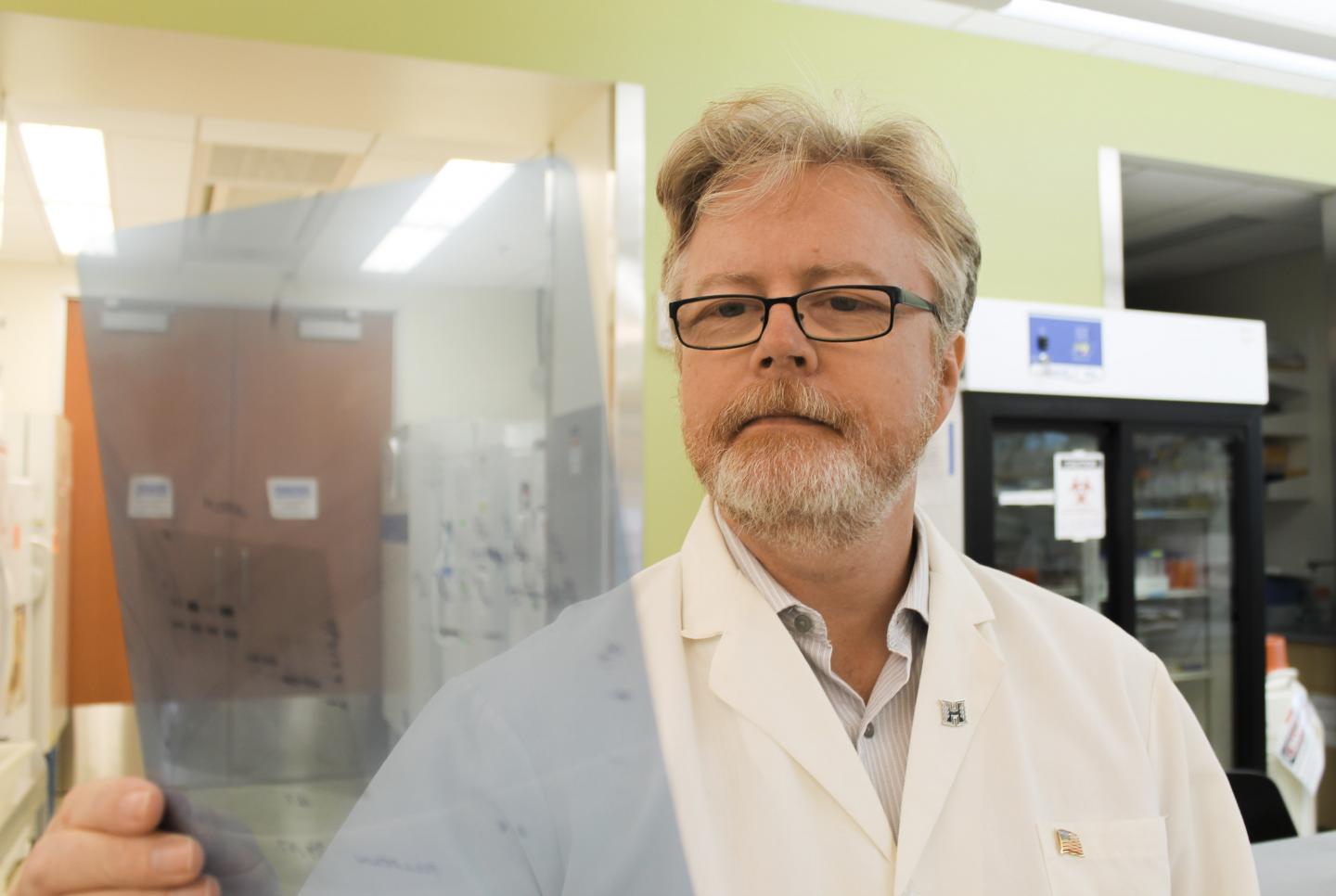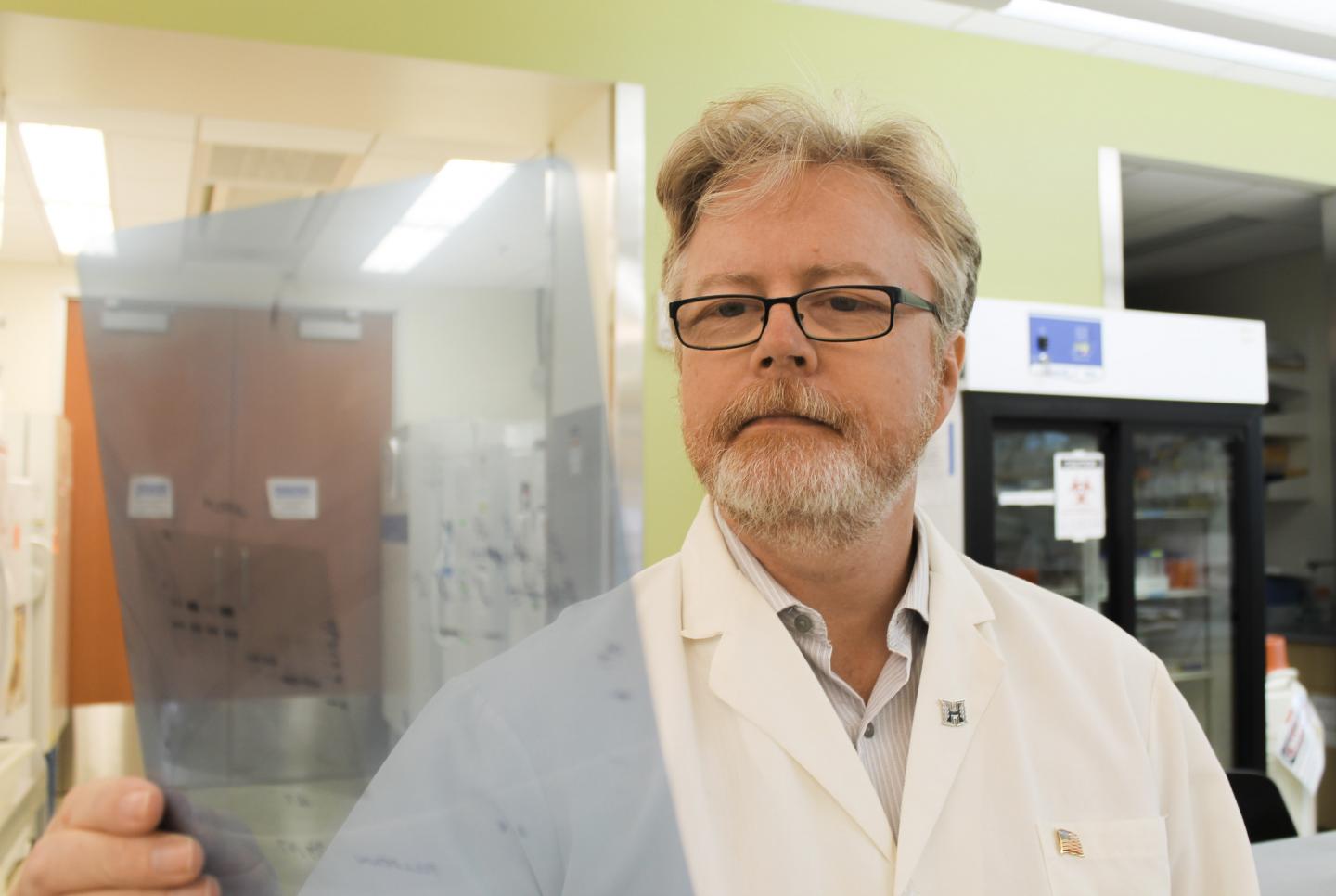
Credit: UHCancerCenter
University of Hawai'i Cancer Center researchers have identified an essential driver of tumor cell invasion in glioblastoma, the most aggressive form of brain cancer that can occur at any age. The discovery can help researchers create novel targeted therapies potentially reducing deaths from this devastating cancer.
"New treatment options for brain cancer patients are desperately needed," said Joe W. Ramos, UH Cancer Center deputy director and lead researcher on the study. "Treatment options include chemotherapy in combination with radiation, but they only prolong a patient's life by a few months."
Glioblastoma remains a lethal cancer with only a 14-month average survival rate after initial diagnosis.
The study published in Oncotarget reveals that a protein called RSK2 is increased in many patients with glioblastoma. The protein pushes glioblastoma cells into surrounding healthy brain tissue. The invasion of these cells throughout the brain makes it difficult to remove the tumor by surgery, which contributes to high recurrence and poor survival rates in patients. The invading glioblastoma cells are less sensitive to current standard therapies. The research team found that inhibiting RSK2 stops invasion of the tumor cells and enhances the effectiveness of standard chemotherapy in tumor cells obtained from patients.
"This study paves the way for development of new brain cancer therapies focused on RSK2 inhibitors for brain invasion," said co-author Santosh Kesari, chair of Department of Translational Neurosciences and Neurotherapeutics of the John Wayne Cancer Institute and Pacific Neuroscience Institute at Providence Saint John's Health Center.
"The next steps include identifying better compounds to target the RSK2 protein.
We are hoping to discover a powerful new drug to treat this aggressive brain cancer," said Ramos.
The findings resulted from several years of collaboration among the labs of Ramos and Michelle Matter at the UH Cancer Center, Kesari at the John Wayne Cancer Institute, and Dirk Geerts of Erasmus University Medical Center in the Netherlands.
"The new discovery can potentially lead to a new class of drugs to treat not only brain cancers, but other invasive cancers as well. With about 60 new cases of brain cancer diagnosed every year in Hawai'i, and about 40 deaths, an effective treatment can help many patients in our state," said Randall Holcombe, UH Cancer Center director.
###
Publication
https://goo.gl/UZK4UK
DOI: 10.18632/oncotarget.13084
The University of Hawai'i Cancer Center through its various activities, cancer trial patients and their guests, and other visitors adds more than $54 million to the O'ahu economy. This is equivalent to supporting 776 jobs. It is one of only 69 research institutions designated by the National Cancer Institute. Affiliated with the University of Hawai'i at Mānoa, the Center is dedicated to eliminating cancer through research, education, and improved patient care. Learn more at http://www.uhcancercenter.org. Like us on Facebook at http://www.facebook.com/UHCancerCenter. Follow us on Twitter @UHCancerCenter.
Media Contact
Nana Ohkawa
[email protected]
808-564-5911
@UHCancerCenter
http://www.uhcancercenter.org/
############
Story Source: Materials provided by Scienmag





